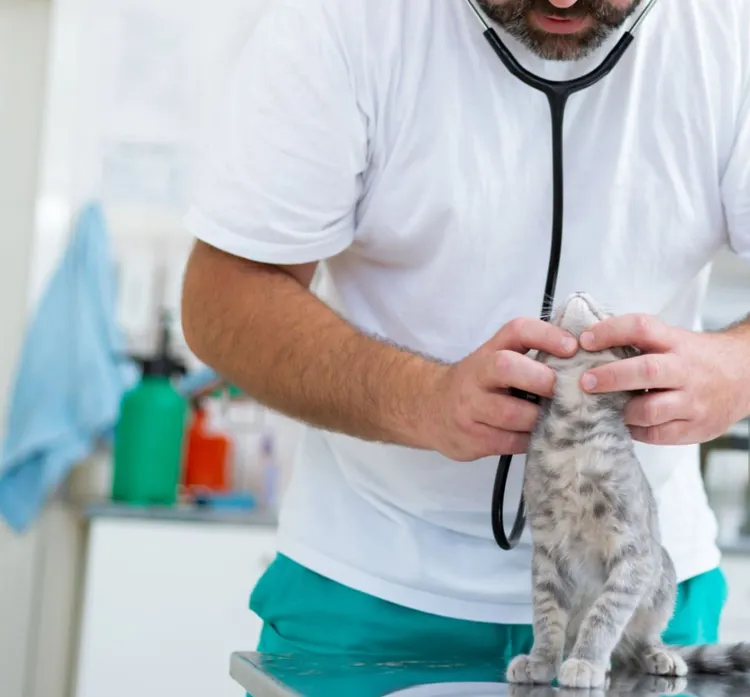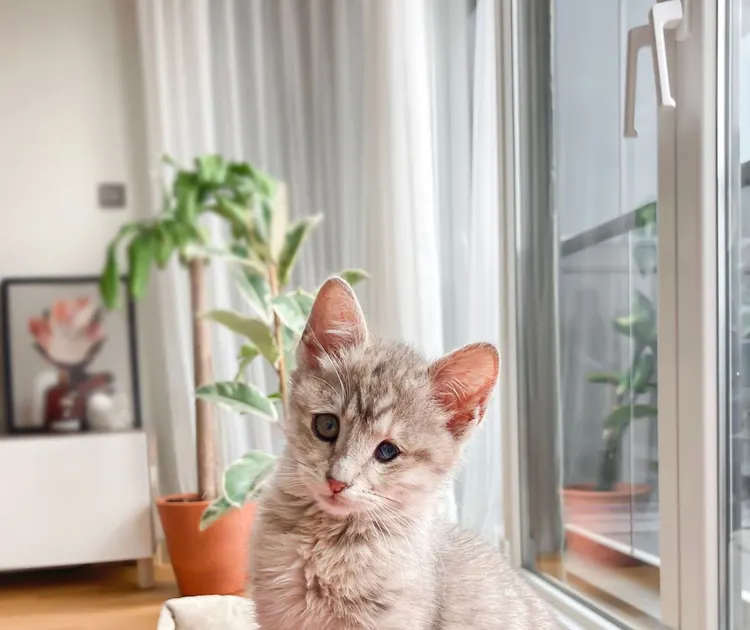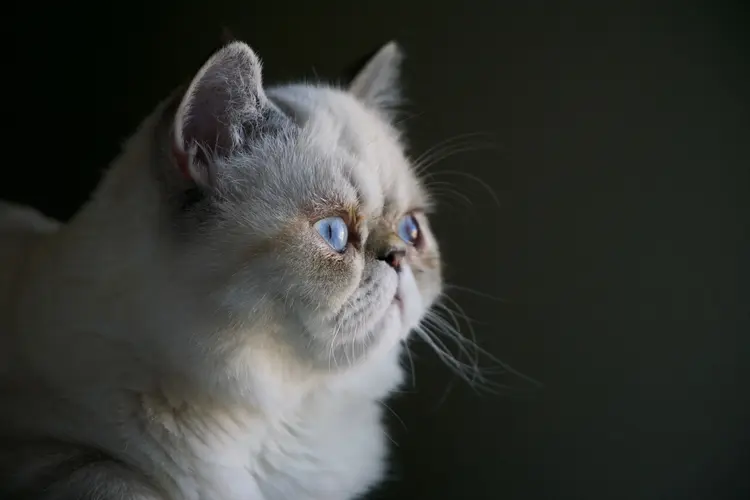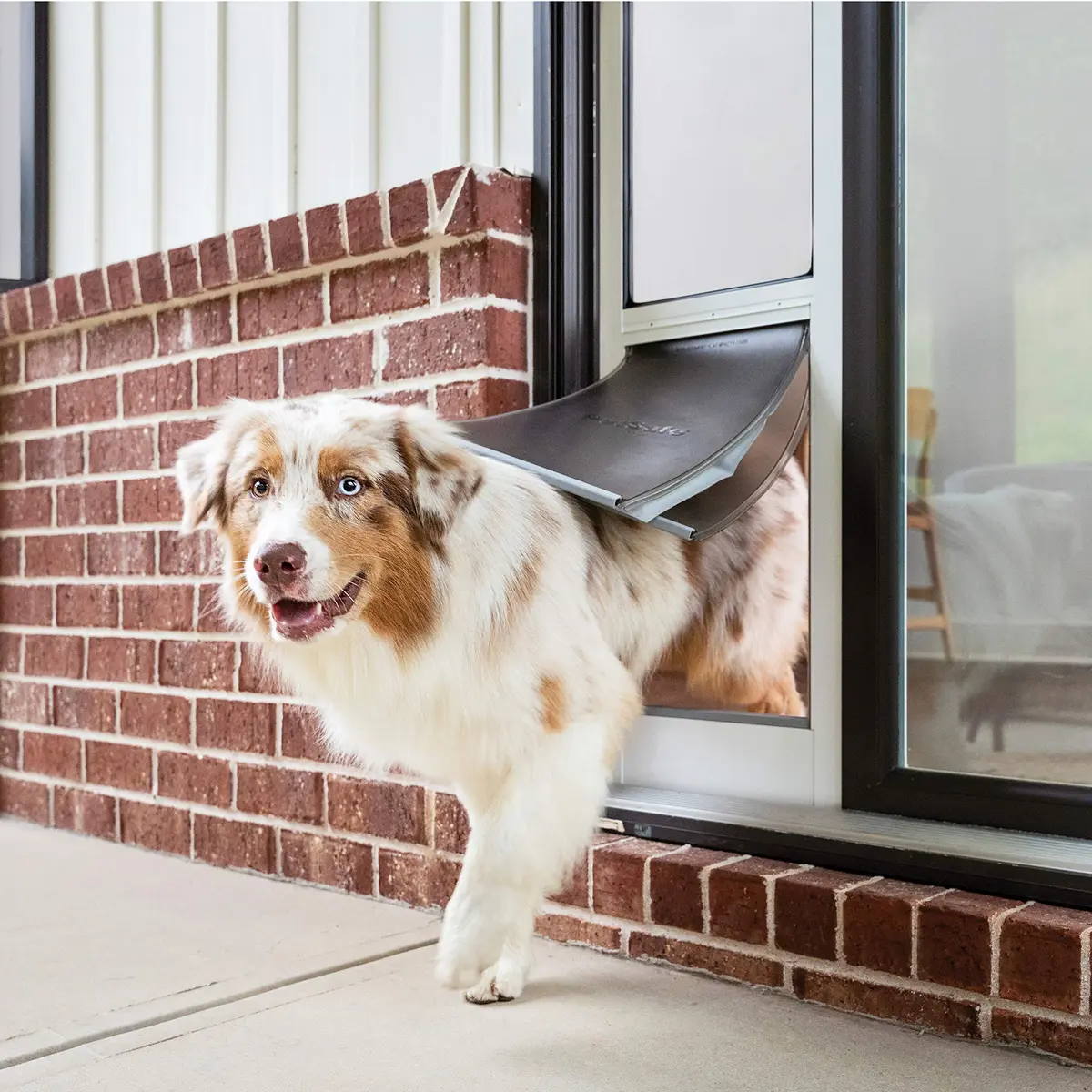Have you ever encountered a cat with unique facial features or quirky behavior and wondered if they might have Down syndrome? While the idea has circulated widely, the reality is that Down syndrome in cats is scientifically impossible. However, some cats do exhibit certain physical or behavioral characteristics that resemble traits associated with Down syndrome, stemming from different health issues altogether. Let’s explore the science behind this misconception, identify conditions that mimic these traits, and discuss how to responsibly care for these special cats.
Can Cats Have Down Syndrome?
The Short Answer: No, cats cannot have Down syndrome.
Down syndrome, known medically as trisomy 21, occurs when a person has an extra copy of chromosome 21. This condition is exclusive to humans due to our unique chromosomal makeup. Humans have 23 pairs of chromosomes, while cats have only 19 pairs. Since trisomy 21 is specific to the 21st human chromosome, it doesn’t exist in cats.
So, What Causes Similar Symptoms in Cats? Although Down syndrome cannot occur in cats, they may be affected by genetic, developmental, or environmental factors that cause unusual facial features or behavioral differences. These characteristics are sometimes mistaken for Down syndrome, but they stem from unrelated health issues.
Symptoms Mistaken for Down Syndrome in Cats
Cats exhibiting certain traits may appear to resemble a Down syndrome diagnosis. Some common symptoms include:
- Facial Abnormalities: Wide-set eyes, a flattened nose, or an unusual head shape can give a cat a distinct appearance.
- Motor and Coordination Issues: Some cats experience difficulty with balance, walking, or coordination.
- Cognitive Challenges: Cats with neurological differences may display unusual behaviors, slower responses, or unique social habits.
These signs can stem from a range of health issues and conditions, many of which have distinct causes and care requirements. Let’s look at some of the most common conditions that can mimic these symptoms in cats.
Conditions That Mimic Down Syndrome in Cats
- Cerebellar Hypoplasia
Cerebellar hypoplasia is a neurological disorder that occurs when the cerebellum—the part of the brain responsible for coordination and balance—fails to develop fully. This condition, often present from birth, may lead to wobbly movement, unsteady gait, and difficulty with coordination. Cats with cerebellar hypoplasia are sometimes called “wobbly cats” and, while they may have motor challenges, they can still live happy lives with the proper support. - Genetic or Developmental Abnormalities
Some cats may be born with congenital abnormalities affecting their physical appearance or behavior. For example, certain genetic factors can lead to facial malformations, such as cleft palates, unusual jaw structures, or other physical traits that give cats a unique look. These conditions may be mistaken for Down syndrome but are usually related to genetic mutations or developmental issues in the womb. - Infections During Pregnancy
Pregnant cats exposed to infections like the feline panleukopenia virus may give birth to kittens with neurological issues. These kittens may struggle with movement, coordination, and even cognitive functioning. While similar in symptoms to Down syndrome, these effects stem from viral infections that affect the kittens’ development, particularly their neurological systems. - Head Trauma
Injury can also cause symptoms that resemble cognitive or physical abnormalities in cats. A cat that suffers head trauma may display behavioral changes, motor issues, or difficulty with balance. While these symptoms may look similar to traits seen in Down syndrome, they are the result of neurological damage due to injury rather than a genetic condition.
How to Care for Cats with Special Needs
Caring for a cat with special needs requires patience, understanding, and a commitment to their well-being. By implementing eco-conscious practices and prioritizing your pet’s health, you can help them thrive in a safe, supportive environment.

1. Veterinary Monitoring
Regular vet check-ups are essential for any cat, but they’re especially important for those with special needs. Routine exams help catch potential health issues early, allowing you and your veterinarian to create a care plan tailored to your cat’s unique challenges.
2. Special Diet
Cats with special needs may require specific dietary considerations to support their overall health and development. When possible, opt for nutritious, eco-friendly food options that are sustainably sourced. Organic and responsibly sourced ingredients provide the nutrients they need while reducing the environmental impact of food production.
3. Environmental Enrichment
Enrichment activities keep cats mentally stimulated, which is especially valuable for cats with cognitive challenges. Consider sustainable toys made from recycled or natural materials, and create an environment that supports your cat’s curiosity and playfulness. Puzzle feeders, eco-friendly scratching posts, and interactive toys can offer both stimulation and comfort.
4. Safety Considerations
Cats with mobility or coordination challenges benefit from pet-safe environments that minimize the risk of injury. Adding soft surfaces, using pet-safe ramps, and creating accessible resting areas can improve your cat’s quality of life. Consider using sustainable materials, such as bamboo or recycled fabric, to support an eco-friendly lifestyle for your pet.
Raising Awareness about Special Needs Cats
Special needs cats face higher rates of abandonment and are less likely to be adopted due to their unique care requirements. By raising awareness, we can help promote compassion and understanding for these special animals and reduce their risk of abandonment.
- Encourage Adoption: Special needs cats can make wonderful pets. Highlight the joy and fulfillment of adopting a special needs pet to help them find loving homes.
- Advocate for Education: Misconceptions like “Down syndrome in cats” can contribute to misunderstandings about feline health. Educating fellow pet owners fosters empathy and more informed care.
- Support Eco-Conscious Care: Choosing sustainable products and practices for special needs cats not only benefits their health but also minimizes environmental impact.

Conclusion
While cats cannot have Down syndrome, many may experience unique health conditions that cause similar physical or behavioral traits. By understanding these conditions and implementing eco-friendly practices, you can provide compassionate, sustainable care for special needs cats. These animals deserve our love and understanding, and adopting eco-conscious habits is one way to create a healthier, happier world for them.
Each cat has unique needs, but with your love and a commitment to their well-being, they can live a fulfilling life in a safe, supportive home. Let’s continue to spread awareness, foster compassion, and advocate for special needs animals everywhere.



